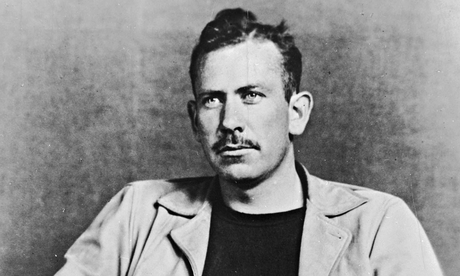
Education secretary Michael Gove has denounced "culture warriors on Twitter" for spreading claims that he banned classic American novels such as John Steinbeck's Of Mice and Men and Harper Lee's To Kill a Mockingbird from the GCSE English literature curriculum.
"I have not banned anything. Nor has anyone else. All we are doing is asking exam boards to broaden – not narrow – the books young people study for GCSE," Gove wrote in the Daily Telegraph.
However, the new syllabus leaves less flexibility for studying modern authors from outside the British isles – such as Steinbeck – although exam boards and teachers are free to include additional texts, or authors from outside of Britain and Ireland under the other categories.
Gove's response follows reports that he had personally intervened in the reforms to the GCSE syllabus, with a representative of the OCR exam board claiming it was Gove's antipathy to John Steinbeck's Depression-era novel that had caused American fiction to be shunted out of classrooms in England. Paul Dodd, the OCR exam board's head of GCSE and A-level reform, directly linked the moveto the education secretary's personal taste, claiming he "really dislikes" Of Mice And Men.
The reports sparked a chorus of complaints that Gove was imposing his tastes and political views on the books schoolchildren in England can study.
"Do I think Of Mice and Men ... and To Kill a Mockingbird are bad books? Of course not. I read and loved them all as a child. And I want children in the future to be able to read them all," Gove wrote.
"But sometimes a rogue meme can be halfway round the world before the truth has got its boots on. Just because one chap at one exam board claimed I didn't like Of Mice and Men, the myth took hold that it – and every other pesky American author – had been banned."
The education secretary defended the changes that come into force next year, arguing that pupils will be studying a broader core of works that must include at least one Shakespeare play, poetry from 1789 on including the Romantics and a 19th century novel, as well as a work of fiction or drama originating from the British isles since 1914.
The new syllabus leaves less flexibility for studying modern authors from outside the British isles – such as Steinbeck – although exam boards and teachers are free to include additional texts, or authors from outside of Britain and Ireland under the other categories.
Gove argued that in one recent year, 280,000 pupils studied just one novel for the AQA exam board's GCSE course, with more than 190,000 of those studying Of Mice and Men.
"There are, in reality, four exam boards that can offer GCSE English literature and there are no rules requiring them to exclude or marginalise any writer," Gove said.
"If they wish to include Steinbeck – whether it's Of Mice and Men or The Grapes of Wrath – no one would be more delighted than me, because I want children to read more widely and range more freely intellectually in every subject."
Defenders of Gove's reforms pointed out that the changes improve the chances of George Orwell's dystopian novel 1984 or Aldous Huxley's Brave New World from being studied at GCSE level.
The controversy seems to have boosted sales for To Kill a Mockingbird, Harper Lee's famous tale of racism in the US south. The novel rose to number nine on Amazon UK's bestseller list on Monday. "Dear Mr Gove, please dis another one of our books," staff at publishers William Heinemann tweeted.
Other new courses designed in the wake of Gove's GCSE reforms have attracted controversy for who they included rather than left out. A new course proposed by OCR for a separate GCSE subject – English language and literature – with Russell Brand among texts to be studied was attacked as "rubbish" by Department for Education sources.

